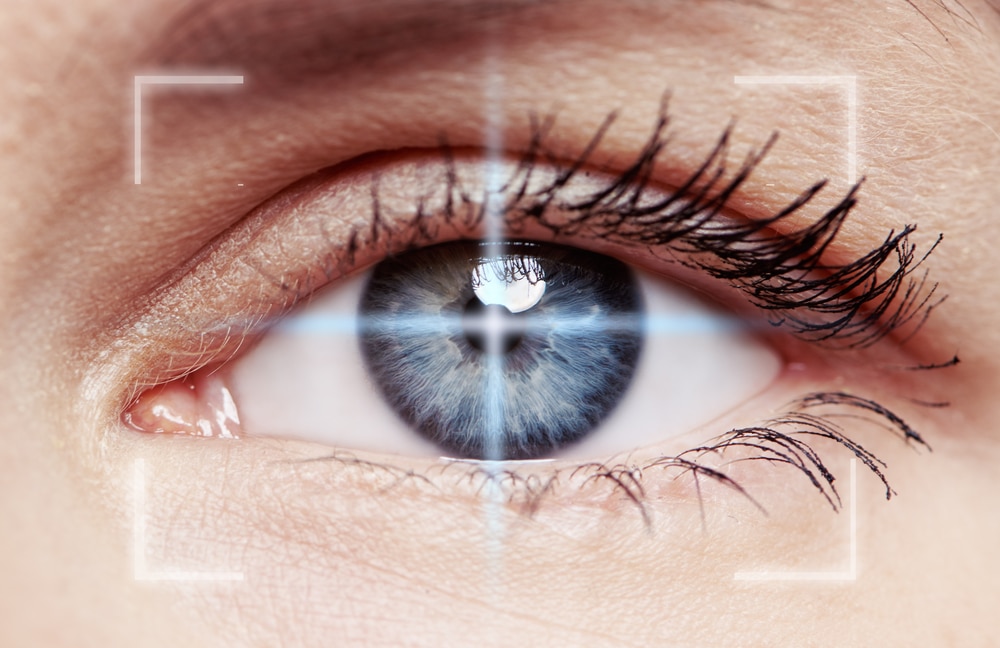Medically Reviewed by: Paul J. Stewart M.D.
Floaters in Your Eyes: What They Are & How to Treat Them
For those who don’t know what they are, having floaters in your eyes can be a little disconcerting. The good news, though, is that most floaters are completely harmless. On top of that, floaters that don’t go away on their own can be treated.
Still uneasy? This guide will walk you through everything you need to know about the floaters in your eyes, as well as your options for dealing with them.
What causes floaters in your eyes?
The jelly-like substance that makes up your eyeball is called vitreous gel. As you age, your vitreous gel becomes more fluid. During this process, extremely small fibers in the gel may begin to clump together. Floaters are the shadows of these clumps.
Floaters come in the form of anything from dots to squiggles to web-like formations. You can see them most easily by looking at a surface that is blank and/or all one color.
What makes you more likely to get floaters?
Most floaters arise as part of the aging process; however, there are some additional factors that might make you more susceptible to floaters. These can include:
- Eye inflammation
- Eye surgeries (particularly after cataract surgery — read more about cataract surgery in Houston on our site)
- Retinal problems, including retina problems from diabetes (diabetic retinopathy)
- Being nearsighted (for reference, here’s a quick look at the difference between nearsighted and farsighted)
- Eye trauma
Are floaters in your eyes dangerous?
Typically, they are not. However, if you experience a sudden onset of new floaters, more floaters in your eyes than usual, darkness in your peripheral vision, or flashes of light, it’s recommended that you call your doctor and/or eye specialist ASAP. These symptoms could be an indicator of a retinal tear which, if left untreated, can cause severe vision problems or blindness.
Do eye floaters go away on their own?
Yes! Many people can ignore an eye floater or two, and sometimes, floaters can even go away on their own. In the end, that’s good news for most patients dealing with floaters: since floaters are not considered a major medical issue, almost all individuals must pay out of pocket if they’re seeking eye floaters treatment.
How do you treat eye floaters?
What if the floaters in your eyes won’t go away? Or, what happens if the floaters start to cause vision impairment? Luckily, there is a form of eye floaters treatment: laser floater removal. During this treatment, your eyeball is numbed. Your surgeon would then use a laser that emits small bursts of energy at your floater. In doing so, the collagen and molecules found in floaters are converted into gas.
Laser floater removal is minimally invasive and can typically be performed in-office.
Do you have floaters in your eyes?
The experienced eye surgeons at Eye Center of Texas may be known for performing some of the best LASIK in Houston, but they are highly skilled at laser floater removal and an array of other surgical specialties, as well. Over 300 doctors in Houston refer their patients to Eye Center of Texas for laser floater removal, cataract surgery, LASIK, and so much more.
If you’re ready to get rid of pesky floaters, call Eye Center of Texas at 713-797-1010 or request an appointment online today.
Related Articles
Financing Options Available
Apply today to find a financing option that meets your needs.
Our Locations
Houston/Bellaire
6565 W. Loop S., Suite 650Bellaire, TX 77401
Medical Office:
713-797-1010
Medical Fax:
713-357-7276
LASIK/Near Vision:
Office: 713-395-1515
Fax: 713-357-7278
Pasadena
4415 Crenshaw RoadPasadena, TX 77504
Medical Office:
281-977-8800
Medical Fax:
281-977-8877
Sugar Land
15200 S.W. Freeway, Suite 130Sugar Land, TX 77478
Medical Office:
281-277-1010
Medical Fax:
281-277-4504
Clear Lake
455 E. Medical Center Blvd., Suite 110Webster, TX 77598
Medical Office:
281-332-1397
Medical Fax:
281-282-9152
Katy
Greenhouse Medical Plaza2051 Greenhouse Road, Suite 110
Houston, TX 77084
Medical Office:
346-547-7070
Medical Fax:
281-214-2971
The Woodlands/Conroe
100 Medical Center Blvd., Suite 118Conroe, TX 77304
Medical Office:
936-647-1610
Medical Fax:
936-647-1620


